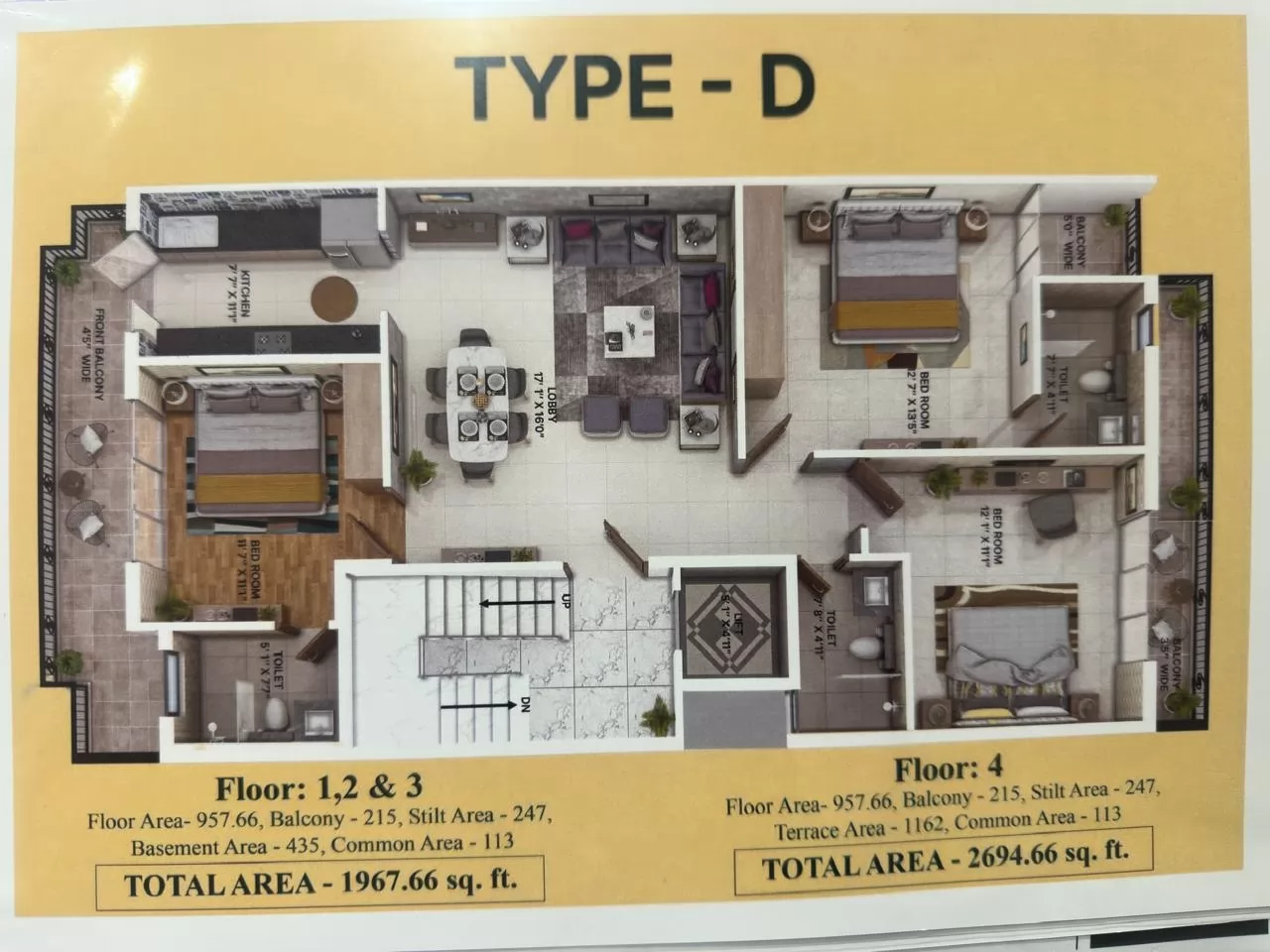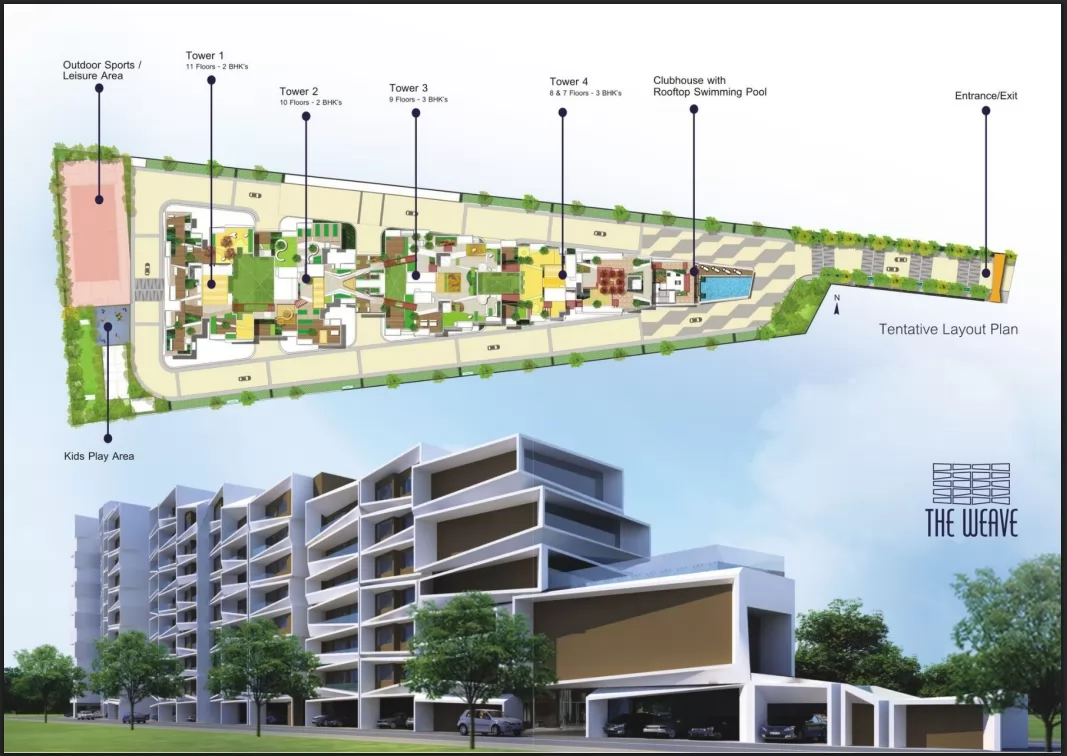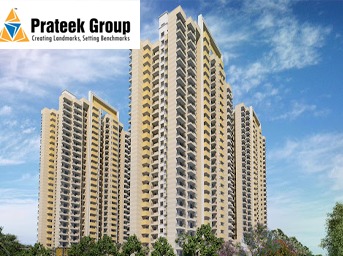Real Estate Growth Focus To Shift To Tier-2 Cities : Report
By Bricksnwall | 2023-10-06

According to the study, attention will shift to tier-2 cities like
Bhubaneswar, Coimbatore, Indore, Jaipur, Kochi, Lucknow, Nagpur, Surat,
Thiruvananthapuram, and Visakhapatnam.
To determine the developing cities,
the research takes into account factors including population, economic
strength, and the potential allure of the cities from commercial real estate.
The focus will shift to tier-2 towns
like Bhubaneswar, Coimbatore, Indore, Jaipur, Kochi, Lucknow, Nagpur, Surat,
Thiruvananthapuram, and Visakhapatnam which have the advantages and development
potential to be the next promising destination for the real estate sector,
according to a report by Cushman and Wakefield, a real estate consultant and
apex body of real estate developers.
The Confederation of Real Estate
Developers' Associations of India (CREDAI), the top organization for real
estate developers, released a report on October 6 during the 21st NATCON, which
is taking place in Sharm El Shikh, Egypt.
The largest annual national real
estate convention in Asia, NATCON, is currently in its 21st edition and is
being organized by CREDAI in Egypt. On real estate-related topics such as technological advancements, token or fragmented ownership, sustainable and
green housing, commercial real estate, and tier 2/3/4 growth centers, among
others, will be discussed and debated throughout the two-day convention.
While the primary real estate markets
in India continue to be Delhi NCR, Mumbai, Bengaluru, Pune, Hyderabad, Chennai,
Kolkata, and Ahmedabad, the report predicts that these 10 tier-II cities will
soon provide additional strength to the country's growth story, advancing its
development.
According to the survey, the locations
were chosen based on factors including population, infrastructure, talent pool,
income, ease of life, and housing affordability.
The research emphasizes how tier-I
cities are under pressure from increasing urbanization as they attempt to meet
the expanding demand for well-built places. According to the report, the
country is rapidly urbanizing, with the urbanization rate increasing from 32%
in 2013 to 36% in 2023. This is shifting attention to areas that have the
advantages and development potential to be the next prospective destinations
for the real estate sector.
We expect newer cities to fuel the
future expansion of the commercial real estate sector as India continues its
journey of economic progress and experiences a higher rate of urbanization.
According to Boman R Irani, President CREDAI, "We think this research will
prove to be beneficial not just for corporate occupiers looking beyond the top
8 real estate markets for alternative sites, but will also give developers
insights on the kinds of prospects that exist in their respective fields.
"The study offers priceless
insights on the growth story of the nation, with the real estate sector serving
as one of the major drivers. We are predicted to have the fastest major economic
growth and be on track to reach a GDP of $5.0 trillion by FY2026-27. But it is
increasingly clear that in order to achieve our goals, we must further
accelerate our rate of economic growth and build new metro areas. India's
tier-2 cities will make a significant contribution to the story of
nation-building. Anshul Jain, Head of APAC Tenant Representation and Managing
Director, India & South East Asia, stated that the goal of this analysis is
to highlight the potential of the top 10 developing cities.
Contributing to the growth story of
real estate is not just the responsibility of the top eight cities. According
to him, up to 10 Tier 2 cities are anticipated to contribute to the expansion.
"The current rate of urbanization
is around 36 percent and by the end of the decade it will touch 40 percent and
by 2050 it will touch 50 percent and we will be far ahead of the world in terms
of urbanization," he stated.
Tier-II cities have become a magnet for retail investments due to rising incomes and consumption levels. India's tier-II cities are becoming into significant consumption hubs as Grade-A malls and prominent high streets are built; this trend is projected to continue in the years to come. Many of these cities have had significant expansion in the residential sector as well, and they score highly on the affordability criterion, according to the survey.




